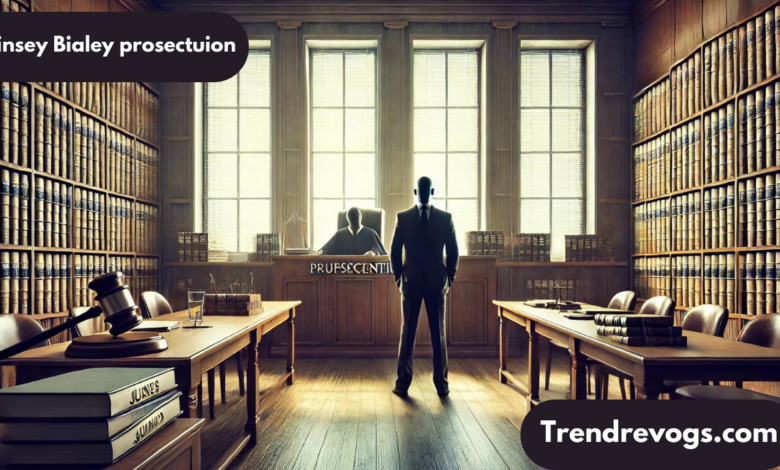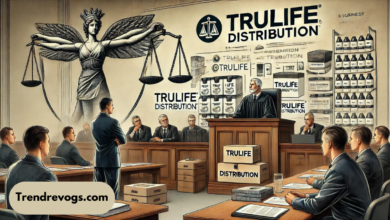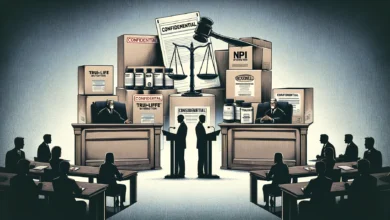Understanding the Linsey Bialey prosectuion: What It Is and Its Implications

In recent years, legal matters and prosecutions often become the focus of public attention due to their implications and outcomes. The term “Linsey Bialey prosectuion” has been a topic of curiosity, with many wondering what it refers to and its importance. While little direct information is currently available in public records, mentioning such a term suggests that it may pertain to legal actions, whether criminal, civil, or both. In this article, we will explore the possible meanings of “Linsey Bialey prosectuion,” analyze similar cases and contexts, and attempt to uncover the underlying legal frameworks that could be involved.
The Name Behind the Case: Linsey Bialey
When investigating the term “Linsey Bialey prosectuion,” it is important first to clarify the identity of the person involved. As of now, no widely publicized court case involving an individual named Linsey Bialey has surfaced, leading to two possibilities. First, this could be a developing or underreported legal case that has yet to reach mainstream news coverage. Second, there may be a miscommunication or misspelling involved, where the name refers to a lesser-known individual or a different case altogether.
Given the lack of concrete information, it’s essential to explore broader examples of prosecutions involving figures with similar backgrounds or circumstances, as this can provide useful context for what the Linsey Bialey prosectuion might involve.
Prosecution in Legal Terms
The concept of prosectuion generally refers to the process by which a legal authority—often a state or national government—charges an individual or entity with a crime. This can occur for a wide variety of reasons, ranging from financial fraud and corporate misconduct to violent crimes or civil rights violations. In criminal cases, prosecution typically involves the government, represented by a prosecutor, attempting to prove that the defendant has committed an illegal act. If successful, the prosecution can result in fines, imprisonment, or other penalties.
On the civil side, prosecution may refer to lawsuits between private parties over breaches of contract, disputes, or damages, often without the involvement of criminal charges.
Given the possible mention of Linsey Bialey in a prosectuion context, it could involve either of these categories depending on the case’s specifics.
The Legal Journey of a prosectuion
Considering the theoretical “Linsey Bialey prosectuion,” its journey aligns with the typical stages of a criminal or civil trial. A prosecution usually begins with an investigation. Law enforcement agencies gather evidence, interview witnesses, and, in the case of criminal acts, try to establish probable cause for an arrest or indictment. During this stage, prosecutors may work closely with investigators to build a solid case.
Afterwards, charges are brought against the defendant. Depending on the nature of the alleged offences, a criminal case could involve fraud, theft, or violent charges. In a civil case, the charges might involve claims of damages, breach of contract, or violation of rights.
Once charges are filed, court proceedings begin. Pretrial hearings and motions may take place to address preliminary matters, such as setting bail, discovering evidence, and arguing over the admissibility of certain pieces of evidence. Eventually, the case moves to trial, where both the prosecution and defence present their evidence and arguments before a judge or jury.
If a “Linsey Bialey prosectuion” were to follow this course, it would involve these steps, likely culminating in a court verdict or settlement.
Speculation on the Nature of the Case
Although no direct reference to Linsey Bialey’s involvement in a well-known legal case exists, exploring related instances where individuals or organizations face legal scrutiny is useful. Prosecutions can often be triggered by public or governmental concerns over ethical behaviour, financial misconduct, or breaches of trust in professional settings. For example, corporate executives, educators, or public officials may be at the centre of a prosectuion when alleged wrongdoing surfaces in their work.
If Linsey Bialey were involved in such a case, it might be linked to allegations surrounding professional misconduct or ethical violations. Similar cases have drawn public attention for years, such as instances where individuals in positions of power were charged with misuse of funds, abuse of authority, or other forms of criminal behaviour.
Alternatively, the case could involve civil litigation, where one party has taken legal action against another for damages or contract disputes. Such cases are common, with many individuals and companies facing lawsuits over disputes involving business practices, product liabilities, or personal injury claims.
Broader Implications of a High-Profile prosectuion
When a prosectuion involves individuals holding prominent societal roles, the effects extend beyond the courtroom. The trial’s outcome can shape public opinion, impact businesses, or influence legislation. For instance, in high-profile cases involving corporate executives, the repercussions of a conviction or settlement might lead to changes in industry regulations, company policies, or consumer trust. In the educational or public sectors, prosecutions can lead to reforms to prevent similar issues in the future.
If the “Linsey Bialey prosectuion” falls into this category, it could serve as a case study in ethics, legal responsibility, and enforcing professional standards.
Conclusion: Waiting for More Information
While “Linsey Bialey prosectuion” may remain ambiguous, the legal processes surrounding such cases are well-established. Whether it involves criminal charges, civil lawsuits, or some combination of the two, prosecutions uphold the law, ensure accountability, and seek justice for those affected.
In the meantime, it remains crucial to follow any developments in this case—or any case involving similar names or circumstances—as they emerge in public records or news outlets. As with any legal matter, transparency and factual reporting are essential for understanding the broader implications of a prosecution and its impact on society.
In conclusion, whether Linsey Bialey is involved in a high-profile or lower-key case, the prosecution process will follow established legal norms. As more details potentially emerge, the case’s significance will become clearer, offering insights into the legal, professional, and ethical challenges it addresses.




